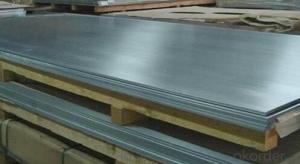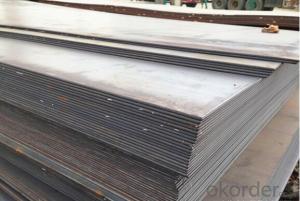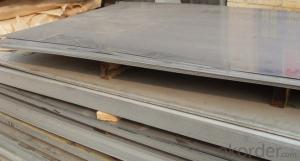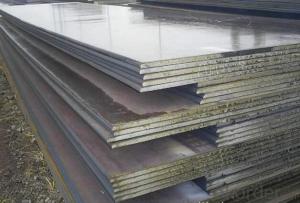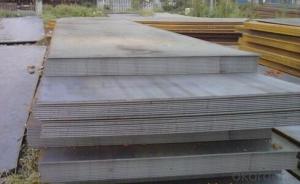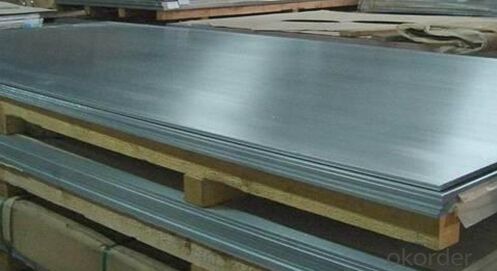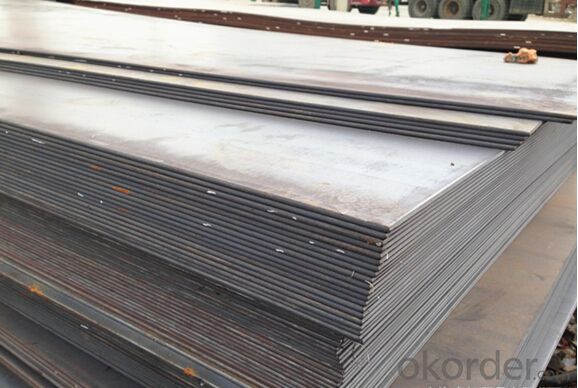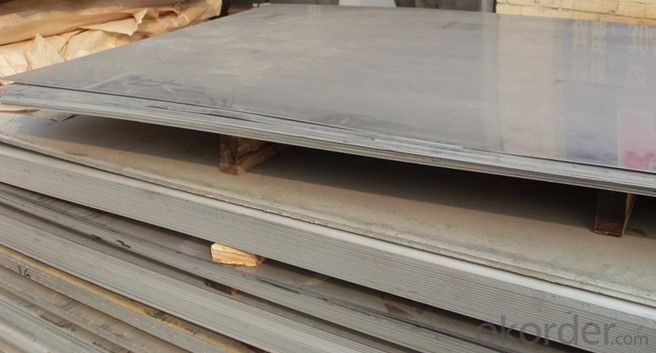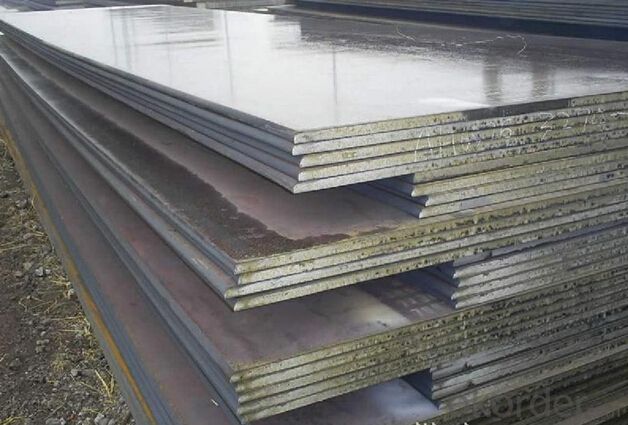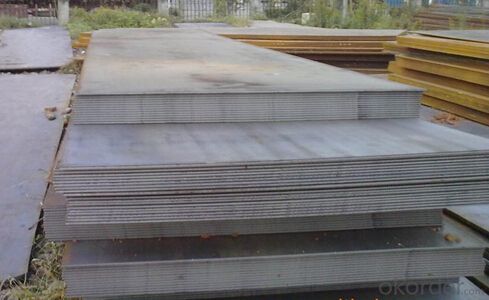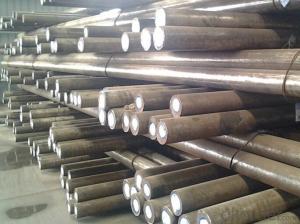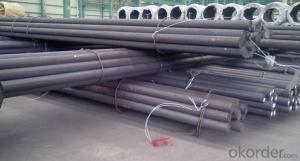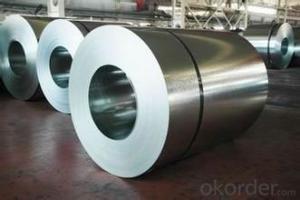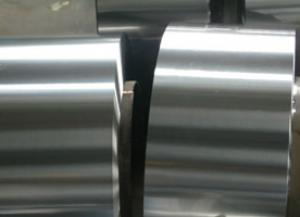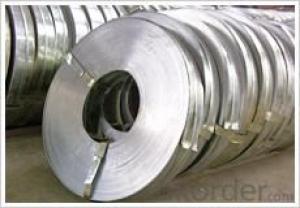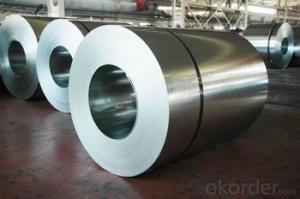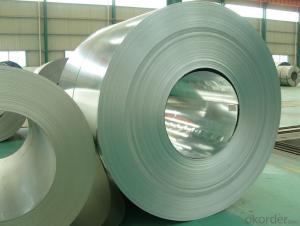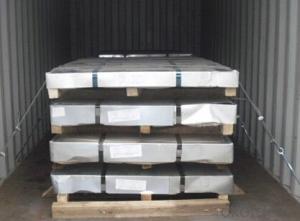SGS Approved DIN 1623 St12 Grade Cold Rolled Steel Sheet in Coils
- Loading Port:
- Tianjin
- Payment Terms:
- TT OR LC
- Min Order Qty:
- 3 m.t.
- Supply Capability:
- 100000 m.t./month
OKorder Service Pledge
OKorder Financial Service
You Might Also Like
Specification
SGS Approved DIN 1623 St12 Grade Cold Rolled Steel Sheet in Coils
Detailed Information of SGS Approved DIN 1623 St12 Grade Cold Rolled Steel Sheet in Coils
| C | Si | P | S | yield Strength MAp | Tensile strength MAp | Elongation % | ||
| A36 | 0.24 | 0.4 | 0.045 | 0.03 | 250 | 400-520 | 26 | |
| C | Si | Mn | P | S | Cu | |||
| A283 | ≤0.27 | 0.15-0.4 | ≤0.9 | ≤0.035 | ≤0.04 | ≥0.2 | ||
| Thickness: | 6mm, 8mm, 12mm, 16mm, 20mm, 25mm, 30mm, 50mm, 80mm, 100mm, 150mm, 200mm | |||||||
| Width: | 1500mm, 1800mm, 2000mm, 2200mm, 2500mm | |||||||
| Length: | 6000mm, 8000m, can cut to width and length | |||||||
| Packing Details; | according to customer‘s require or export’s standard | |||||||
| Delivery time; | 7 days for stock sizes, 20-25 days for new production sizes | |||||||
| Port: | Tianjin China | |||||||
Related Products Overviews of SGS Approved DIN 1623 St12 Grade Cold Rolled Steel Sheet in Coils
Product Name | Typical Grades | Diameter(mm) | Standard Adopted |
Carbon Steel | 20 (1020/S20C/C22) |
Ø16-Ø300 |
GB/SAE/ JIS/DIN |
40 (1040/S40C/C40) | |||
45 (1045/S45C/C45) | |||
Bearing Steel | GCr9 (51100/SUJ1) |
Ø12-Ø250 | |
GCr15 (52100/SUJ2/100Gr6) | |||
GCr9SiMn (A485-Gr.1/SUJ3) | |||
Cr-Mo Steel | 20Cr (5120/SCr420H/20Cr4) |
Ø12-Ø250 | |
40Cr (5140/SCr440/41Cr4) | |||
42CrMo(4140/SCM440/42CrMo4) | |||
Gear Steel | 20CrNiMo |
Ø16-Ø600 | |
20CrMn(5115/SMnC420/20MnCr5) | |||
20CrNiMo(8620/SNCM220/20CrMiMo2) |
Related Products Application of SGS Approved DIN 1623 St12 Grade Cold Rolled Steel Sheet in Coils
Carbon Steel | l Mold bottom l Plastic mold l Construction machinery parts l Automobile parts l Security grills l Screens l Construction |
Bearing Steel | l Aerospace l Navigation l Nuclear energy l Chemical industry l Electronic information l Petrochemical l Instrument and meter l Transportation |
Cr-Mo Steel | l Mechanism & Fasteners gear l Stressed components for vehicles l Engines and machines l Parts of larger cross-section |
Gear Steel | l All kinds of gears l Statically and dynamically stressed component for vehicles l Engines and machine l Larger cross-section parts l Crankshafts |
Company Introduction of SGS Approved DIN 1623 St12 Grade Cold Rolled Steel Sheet in Coils
CNBM International Corporation is the most import and export platform of CNBM group(China National Building Material Group Corporation) ,which is a state-owned enterprise, ranked in 270th of Fortune Global 500 in 2015.
With its advantages, CNBM International are mainly concentrate on Cement, Glass, Iron and Steel, Ceramics industries and devotes herself for supplying high quality series of refractories as well as technical consultancies and logistics solution.
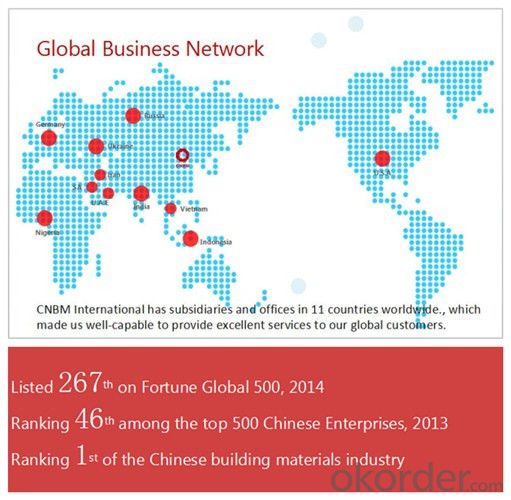
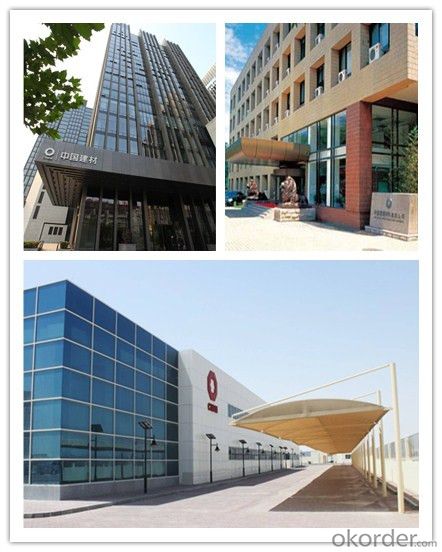
After-sale service | l CNBM provides the services and support you need for every step of our cooperation. We’re the business partners you can trust; you can relax and get on with doing business. l For any problem, please kindly contact us at any your convenient time, we’ll reply you in our first priority within 24 hours
|
Advantages
| l Industry experience over 20 years. l Shipment of goods -More than 70 countries worldwide. l The most convenient transport and prompt delivery. l Competitive price with best service. l High technical production line with top quality products. l High reputation based on best quality products.
|
Packaging & Delivery of SGS Approved DIN 1623 St12 Grade Cold Rolled Steel Sheet in Coils
Packaging Detail | Sea worthy packing /as per customer's packing instruction |
Delivery Detail | 15 ~ 40 days after receiving the deposit |
Products Show
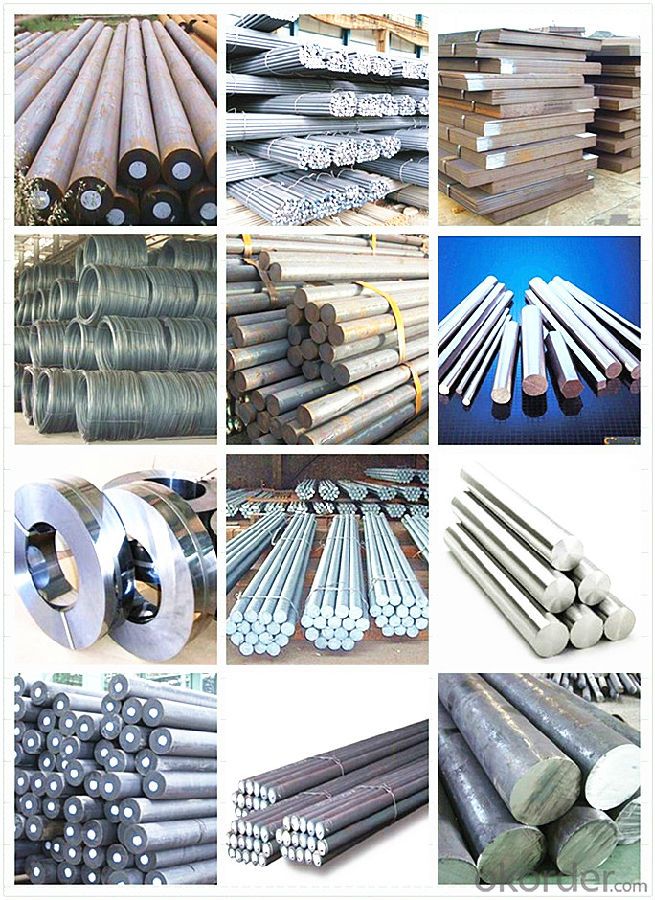
FAQ:
Are you a trading company or manufacturer? | Manufacturer |
What’s the MOQ? | 3 metric ton |
What’s your delivery time? | 15-35 days after downpayment received |
Do you Accept OEM service? | Yes |
what’s your delivery terms? | FOB/CFR/CIF |
What's the Payment Terms? | 30% as deposit,70% before shipment by T/T |
Western Union acceptable for small amount. | |
L/C acceptable for large amount. | |
Scrow ,Paybal,Alipay are also ok | |
Why choose us? | Chose happens because of quality, then price, We can give you both. Additionally, we can also offer professional products inquiry, products knowledge train (for agents), smooth goods delivery, excellent customer solution proposals. |
What's your available port of Shipment? | Main Port, China |
What’s your featured services? | Our service formula: good quality+ good price+ good service=customer's trust
|
Where are your Market? | Covering more than 160 countries in the world |
- Q: What are the different heat treatment processes used for special steel?
- Some of the different heat treatment processes used for special steel include annealing, tempering, quenching, and hardening.
- Q: What are the factors that affect the corrosion resistance of special steel?
- The factors that affect the corrosion resistance of special steel include the composition and content of alloying elements, surface finish and treatment, environmental conditions such as temperature, humidity, and exposure to chemicals, as well as the presence of protective coatings or inhibitors. Additionally, the manufacturing process and heat treatment can also influence the corrosion resistance of special steel.
- Q: What are the main characteristics of wear-resistant steel?
- Wear-resistant steel, also referred to as abrasion-resistant steel, possesses distinct qualities that make it highly resistant to wear and tear. Wear-resistant steel exhibits the following key characteristics: 1. High hardness: Typically, wear-resistant steel is hardened to a significant degree, providing excellent resistance against abrasion, impact, and sliding wear. This hardness is achieved through processes like quenching and tempering, resulting in a steel material capable of enduring heavy loads and abrasive environments. 2. Exceptional toughness: Besides its high hardness, wear-resistant steel also showcases exceptional toughness. This means it can absorb impact and withstand heavy shocks without fracturing or breaking. This characteristic is crucial for applications requiring both abrasion and impact resistance, such as mining equipment and earthmoving machinery. 3. Superior strength: Known for its high strength, wear-resistant steel can withstand extreme forces and pressures. This strength is achieved through the use of alloys and heat treatment processes, resulting in a steel material capable of enduring heavy loads and resisting deformation even under intense wear conditions. 4. Excellent weldability: Wear-resistant steel is often designed with good weldability, allowing for easy joining or repairing using various welding techniques. This characteristic is significant as it permits the fabrication of wear-resistant components and the cost-effective repair of worn-out parts. 5. Corrosion resistance: Some wear-resistant steel grades are formulated to exhibit corrosion resistance properties. This ensures the steel remains intact and does not deteriorate when exposed to harsh environments, chemicals, or moisture. This characteristic is particularly useful in applications where wear and corrosion occur simultaneously, such as marine equipment or mining operations. 6. Extended service life: Due to its high hardness, exceptional toughness, superior strength, and corrosion resistance, wear-resistant steel offers an extended service life compared to other steel types. Its ability to withstand wear, impact, and abrasion allows for reduced downtime and maintenance costs, making it highly sought-after in industries like mining, construction, and manufacturing. Overall, the primary attributes of wear-resistant steel make it a reliable and durable material for applications involving prolonged exposure to abrasive conditions. Its unique properties ensure it can withstand heavy loads, resist wear and tear, and maintain its integrity, ultimately leading to improved equipment performance and cost savings.
- Q: How does special steel contribute to the automotive racing industry?
- The automotive racing industry heavily relies on special steel to ensure the high performance and safety of race cars. With its exceptional properties such as strength, durability, and heat resistance, special steel is the ideal choice for various applications in racing vehicles. One of the primary contributions of special steel to the automotive racing industry lies in its utilization in the construction of engine parts. Crankshafts, camshafts, connecting rods, and valves, which face extreme forces and temperatures during racing, benefit greatly from special steel alloys, particularly high-strength steels. These alloys are specifically engineered to withstand such demanding conditions, providing superior performance compared to conventional steel. As a result, race car engines can operate at higher speeds, generate more power, and endure intense racing conditions without compromising reliability. Moreover, special steel is extensively employed in the production of suspension systems and chassis components. Racing cars experience extreme loads and vibrations while cornering and maneuvering at high speeds. By incorporating high-strength steel into these critical components, the structural integrity of the vehicle is enhanced, leading to improved stability, handling, and overall performance. Aside from its performance advantages, special steel also significantly contributes to the safety of race cars. Safety is paramount in the racing industry, and the use of special steel in roll cages and crash structures provides enhanced protection for drivers in the event of accidents. Special steel alloys, such as boron steel, possess exceptional strength and energy absorption capabilities, thereby minimizing the risk of injuries during crashes. Furthermore, the lightweight nature of special steel allows for the reduction of the overall vehicle weight, resulting in improved fuel efficiency and better handling. Through the utilization of advanced steel materials and design techniques, race car manufacturers can strike a balance between strength and weight, optimizing performance while ensuring safety. In conclusion, special steel plays a vital role in the automotive racing industry by contributing to the performance, safety, and reliability of race cars. Its unique properties enable the development of high-performance engine parts, suspension systems, and chassis components, allowing race cars to withstand extreme conditions and achieve superior performance on the track. Additionally, special steel enhances the safety of race cars by providing robust crash protection, while also offering weight reduction benefits for improved fuel efficiency and handling.
- Q: How is corrosion-resistant tool steel used in the production of molds and dies?
- Corrosion-resistant tool steel is used in the production of molds and dies to ensure the longevity and durability of these tools. Since molds and dies are often exposed to harsh environments and corrosive elements, using corrosion-resistant tool steel helps to prevent rust and corrosion, which can lead to premature wear and damage. This type of tool steel also provides excellent strength, hardness, and wear resistance, allowing molds and dies to withstand high-pressure and high-temperature conditions without compromising their performance. Overall, the use of corrosion-resistant tool steel in the production of molds and dies ensures the production of high-quality and long-lasting tools that can withstand the demands of various manufacturing processes.
- Q: What are the different grades of special steel?
- There are several grades of special steel, including stainless steel grades such as 304, 316, and 430; tool steel grades like D2, O1, and A2; and high-speed steel grades such as M2 and M42. Each grade has unique properties and applications, making them suitable for various industries and specific purposes.
- Q: How is special steel classified based on its mechanical properties?
- Special steel is classified based on its mechanical properties by considering factors such as tensile strength, hardness, toughness, and ductility. These properties determine the steel's ability to withstand various types of stress and deformation, making it suitable for specific applications in industries such as automotive, aerospace, and construction.
- Q: What are the different corrosion-resistant coatings for special steel?
- Various corrosion-resistant coatings are available for special steel, each possessing unique properties and advantages. Some commonly used coatings include: 1. Zinc Coating: Galvanizing and other zinc coatings are widely employed to safeguard special steel against corrosion. The zinc layer acts as a sacrificial barrier, preventing corrosive elements from coming into contact with the steel. 2. Epoxy Coating: Due to their exceptional adhesion, chemical resistance, and durability, epoxy coatings are a popular choice for corrosion protection. They create a robust barrier that shields special steel from moisture, chemicals, and other corrosive agents. 3. Polyurethane Coating: In harsh environments where special steel is exposed to extreme conditions, such as offshore or marine applications, polyurethane coatings offer exceptional resistance against abrasion, chemicals, and weathering. 4. Ceramic Coating: Ceramic coatings provide outstanding corrosion protection and high-temperature resistance. They are frequently used in industries like aerospace and automotive, where special steel must withstand extreme temperatures and corrosive environments. 5. Metal Coating: Nickel or chromium coatings are frequently applied to special steel to enhance its corrosion resistance. These coatings establish a protective layer that acts as a physical barrier, preventing corrosion. 6. Powder Coating: Powder coatings are electrostatically applied and then cured under heat, resulting in a hard and durable protective layer. They offer excellent corrosion resistance and can be customized in terms of color and texture. Choosing the appropriate corrosion-resistant coating for special steel is crucial and should be based on specific requirements and the environment it will be exposed to. Factors such as temperature, exposure to chemicals or moisture, and desired coating lifespan should all be considered when selecting the suitable coating.
- Q: What are the applications of special steel in the oil and gas supply chain?
- Special steel has various applications in the oil and gas supply chain. It is commonly used in the construction of pipelines, offshore platforms, and drilling equipment due to its high strength, corrosion resistance, and ability to withstand extreme conditions. Special steel also finds its utility in the manufacturing of valves, fittings, and connectors, ensuring efficient and leak-free operations. Additionally, it is used in the production of storage tanks and vessels, providing reliability and safety in the containment of oil and gas. Overall, special steel plays a crucial role in enhancing the durability, performance, and safety of equipment and infrastructure within the oil and gas supply chain.
- Q: Can special steel be used in the production of valves and fittings?
- Yes, special steel can be used in the production of valves and fittings. Special steel, such as stainless steel or alloy steel, offers excellent corrosion resistance, high temperature resistance, and durability, making it suitable for applications in various industries including oil and gas, chemical, and petrochemical.
Send your message to us
SGS Approved DIN 1623 St12 Grade Cold Rolled Steel Sheet in Coils
- Loading Port:
- Tianjin
- Payment Terms:
- TT OR LC
- Min Order Qty:
- 3 m.t.
- Supply Capability:
- 100000 m.t./month
OKorder Service Pledge
OKorder Financial Service
Similar products
Hot products
Hot Searches
Related keywords
